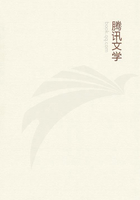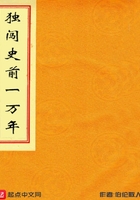But in fact in some cases we have properly granted the premisses or assumptions, and there results from them something; and though it is not true, yet none the less it does result. What then ought I to do? Ought I to admit the falsehood? And how is that possible? Well, should I say that I did not properly grant that which we agreed upon? "But you are not allowed to do even this." Shall I then say that the consequence does not arise through what has been conceded? "But neither is it allowed." What then must be done in this case? Consider if it is not this: as to have borrowed is not enough to make a man still a debtor, but to this must be added the fact that he continues to owe the money and that the debt is not paid, so it is not enough to compel you to admit the inference that you have granted the premisses, but you must abide by what you have granted. Indeed, if the premisses continue to the end such as they were when they were granted, it is absolutely necessary for us to abide by what we have granted, and we must accept their consequences: but if the premisses do not remain such as they were when they were granted, it is absolutely necessary for us also to withdraw from what we granted, and from accepting what does not follow from the words in which our concessions were made. For the inference is now not our inference, nor does it result with our assent, since we have withdrawn from the premisses which we granted. We ought then both to examine such kind of premisses, and such change and variation of them, by which in the course of questioning or answering, or in making the syllogistic conclusion, or in any other such way, the premisses undergo variations, and give occasion to the foolish to be confounded, if they do not see what conclusions are. For what reason ought we to examine? In order that we may not in this matter be employed in an improper manner nor in a confused way.
And the same in hypotheses and hypothetical arguments; for it is necessary sometimes to demand the granting of some hypothesis as a kind of passage to the argument which follows. Must we then allow every hypothesis that is proposed, or not allow every one? And if not every one, which should we allow? And if a man has allowed an hypothesis, must he in every case abide by allowing it? or must he sometimes withdraw from it, but admit the consequences and not admit contradictions? Yes; but suppose that a man says, "If you admit the hypothesis of a possibility, I will draw you to an impossibility." With such a person shall a man of sense refuse to enter into a contest, and avoid discussion and conversation with him? But what other man than the man of sense can use argumentation and is skillful in questioning and answering, and incapable of being cheated and deceived by false reasoning? And shall he enter into the contest, and yet not take care whether he shall engage in argument not rashly and not carelessly? And if he does not take care, how can he be such a man as we conceive him to be? But without some such exercise and preparation, can he maintain a continuous and consistent argument? Let them show this; and all these speculations become superfluous, and are absurd and inconsistent with our notion of a good and serious man.
Why are we still indolent and negligent and sluggish, and why do we seek pretences for not labouring and not being watchful in cultivating our reason? "If then I shall make a mistake in these matters may I not have killed my father?" Slave, where was there a father in this matter that you could kill him? What, then, have you done? The only fault that was possible here is the fault which you have committed. This is the very remark which I made to Rufus when he blamed me for not having discovered the one thing omitted in a certain syllogism: "I suppose," I said, "that I have burnt the Capitol." "Slave," he replied, "was the thing omitted here the Capitol?" Or are these the only crimes, to burn the Capitol and to kill your father? But for a man to use the appearances resented to him rashly and foolishly and carelessly, not to understand argument, nor demonstration, nor sophism, nor, in a word, to see in questioning and answering what is consistent with that which we have granted or is not consistent; is there no error in this?















